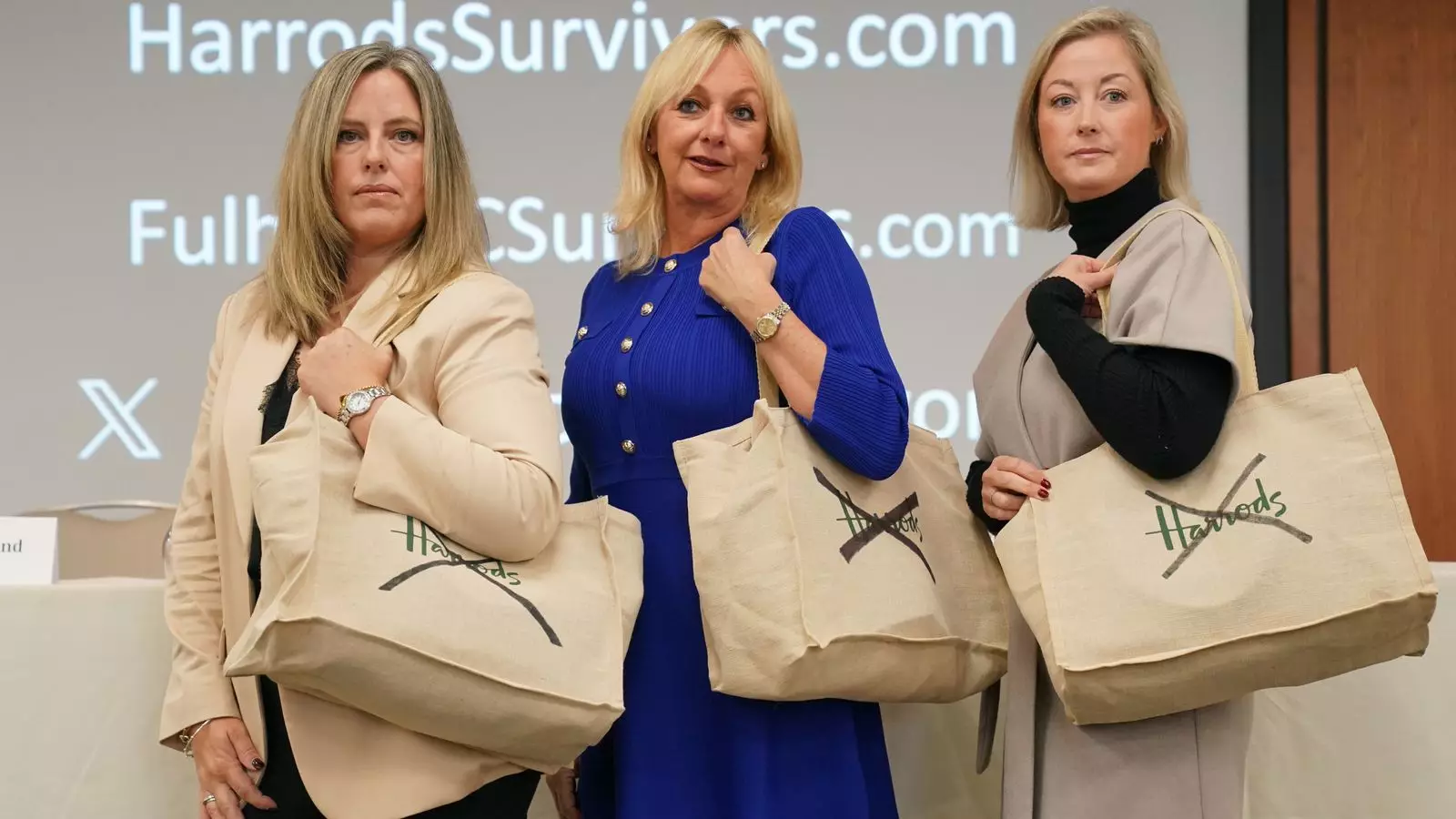In a shocking turn of events, the Justice for Harrods Survivors group has emerged with grave allegations against the late businessman Mohamed al Fayed, who was previously well-known for his ownership of Harrods and Fulham Football Club. Since the airing of a BBC documentary that shed light on Fayed’s alleged misconduct, an overwhelming number of individuals have come forward, sharing their narratives of abuse and witnessing concerning behavior. This surge represents not just a personal tragedy but an alarming societal issue, bringing forth questions about the mechanisms that allowed such a pattern of alleged abuse to continue unchecked.
Magnitude of the Claims
The Survivors group has reported that over 400 individuals, ranging from survivors to witnesses, have reached out to share their experiences. According to their spokesperson, lawyer Dean Armstrong KC, these inquiries have predominantly originated from the UK, but also span international borders, touching on cases from the US, Canada, Asia, and Australia. Mr. Armstrong’s characterization of this phenomenon as “industrial scale of abuse” resonates deeply, as it highlights a systemic failure: one that enabled al Fayed’s alleged predatory behavior across various settings, from his luxurious estates to the high-end ambiance of Harrods.
The implications of such widespread allegations are profound. In a contemporary context where society advocates for accountability for sexual misconduct, these claims serve as a stark reminder of the pervasive nature of abuse in environments that may appease to power dynamics. The increasing number of reports signifies a narrative that is all too familiar in discussions about abuse—bringing forth the necessity of establishing a supportive framework for victims, enabling them to speak out without fear of retribution.
Legal representatives from the Survivors group have expressed concerns regarding the operational culture during Fayed’s tenure at Harrods and Fulham FC. Allegedly, the environments fostered under Fayed’s business leadership provided a breeding ground for misconduct. The phrase “a system that enabled the abuse to happen” sums up this chilling acknowledgment that such actions are often not merely the deeds of individuals but are facilitated by a wider, unsettling corporate ethos.
The evidence gathered by the Survivors group claims encounters of abuse within numerous locations linked to Fayed, including high-profile venues like the Ritz Hotel or his private yacht. These assertions point to a troubling predilection for manipulating circumstances to maintain control and exploit vulnerability.
The mounting testimonies from alleged survivors paint a harrowing picture of the experiences endured within Fayed’s sphere of influence. Among those speaking out is Bianca Gascoigne, the daughter of renowned footballer Paul Gascoigne, who has described her grooming and subsequent abuse while employed at Harrods as a teenager. In addition, former captain of Fulham Women, Ronnie Gibbons, has also bravely come forward with accusations of sexual assault by Fayed.
Such firsthand accounts substantiate the claims of systemic abuse, as they illuminate the deep emotional and psychological scars left by such experiences. The gravity of these narratives cannot be understated, serving as a chilling reminder of the abusive dynamics that may exist in seemingly safe workplaces, particularly when hierarchy and power are at play.
A Call for Justice and Accountability
The legal representatives for the Justice for Harrods Survivors group are not merely navigating past grievances; they are actively seeking justice in a legal landscape that they assert has historically silenced victims. Their announcement regarding the formal legal process beginning with the issuance of claim letters is significant; it demonstrates not only a commitment to seeking remedies for survivors but also aims to challenge the systemic issues that facilitated the alleged abuse in the first place.
As the world continues to grapple with the fallout from numerous high-profile sexual abuse cases, the revelations surrounding Mohamed al Fayed’s alleged misconduct amplify the need for rigorous scrutiny within corporate cultures. These circumstances beckon us to advocate for changes that prioritize the safety and dignity of individuals over the interests of powerful entities.
The narratives emerging from the Justice for Harrods Survivors group highlight an agonizing chapter in the discourse on sexual abuse and institutional accountability. As more individuals find the courage to tell their stories, the stakes have never been higher for society to confront these ugly truths. Only through collective acknowledgment and proactive measures can we hope to prevent such tragedies from occurring in the future, fostering a culture that values respect, safety, and dignity above all.
In the coming months and years, the ramifications of these allegations may redefine the landscape of corporate responsibility and survivor advocacy, sparking broader movements that ensure such stories are not just told but acted upon with the seriousness they deserve.

